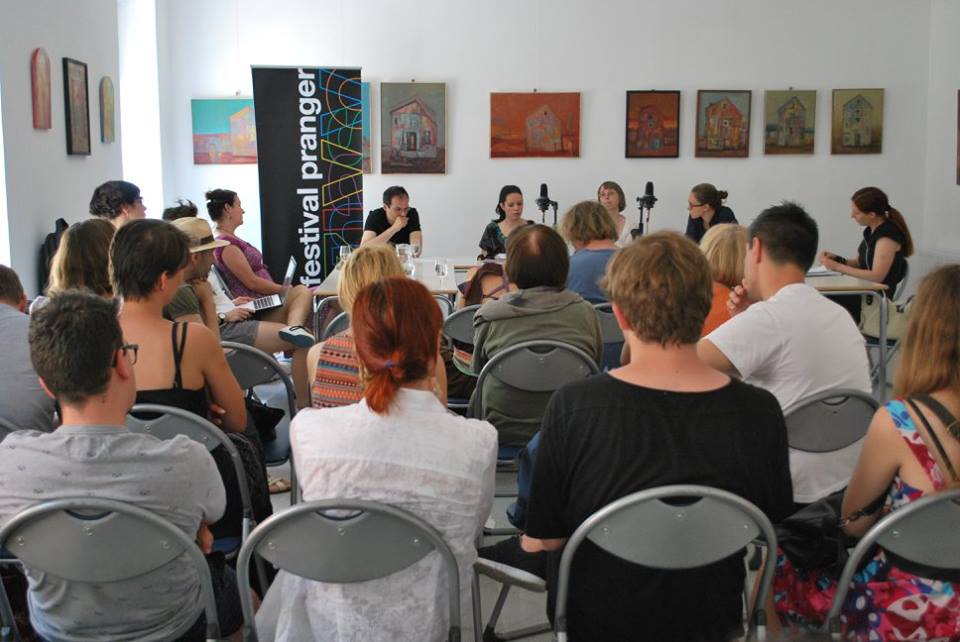This year’s Pranger Festival (http://www NULL.pranger NULL.si/?L=1), a gathering of poets, critics and translators of poetry, was held from 30 June to 5 July in the towns of Rogaška Slatina, Šmarje pri Jelšah and Ljubljana in Slovenia.
Each year at the Festival three critics each choose three collections of Slovene poetry published in the previous year that they consider to be worth debating. Their choices can be either because of what they consider to be positive or a negative aspects of the collections or for other aesthetic or philosophical reasons. The authors of the nine selected collections of poetry and the translators of the books are invited to participate in the debates. The organisers and participants are particularly concerned to go beyond the realm of ‘pillorying’ (pranger in Slovene means ‘pillory’) and to cultivate a high level of respectful criticism. During the this year’s festival, several debates about poetry and related subjects, along with the selected books of poetry and some translations of them into Spanish were discussed.
This year’s festival was organized by translators and critics Urška P. Černe and Goran Potočnik Černe, with the support of some governmental institutions such as the Public Agency for the Book, the hosting municipalities, literary magazines, publishing houses, associations and tourist offices. The festival’s focus was on poetry translated into Spanish.
 (http://www NULL.ceatl NULL.eu/wp-content/uploads/2015/07/slovenia NULL.prangr NULL.1 NULL.july15 NULL.jpg)
(http://www NULL.ceatl NULL.eu/wp-content/uploads/2015/07/slovenia NULL.prangr NULL.1 NULL.july15 NULL.jpg)Round table about poetry, translation and literary criticsm.
The poetry collections that were selected are Petra Kolmančič’s P(l)ast za p(l)astjo (Pivec, Maribor), Stanislava Repar’s Obešanje na zvon (KUD Apokalipsa, Ljubljana), Jana Putrle Srdić’s To noč bodo hrošči prilezli iz zemlje (CSK, Ljubljana), Nataša Velikonja’s Ostani (Škuc, Vizibilija, Ljubljana), Barbara Korun’s Čečíca, motnjena od ljubezni (KUD Ivan Trinko, Čedad / Cividale del Friuli), David Bedrač’s Tvoj nakupovalni voziček (Beletrina, Ljubljana). Peter Kolšek’s Dekleta pojejo (Litera, Maribor), Milan Vincetič’s Pristave (Franc-Franc, Murska Sobota) and Ciril Bergles’s Lazar se odpravlja domov (Mladinska knjiga, Ljubljana).
On the final evening, the annual Stritar Prize for the best young literary critic of the year was awarded to Tanja Petrič, who also works as a translator.
